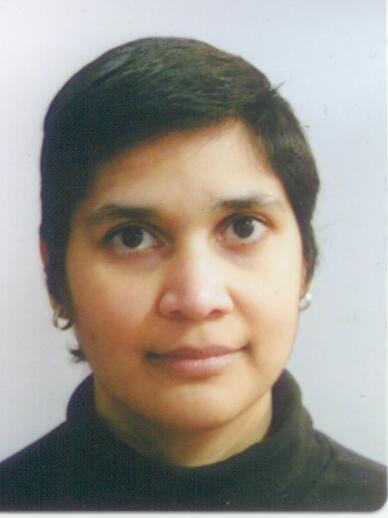Dr Meesbah Jiwaji
NRF Research Career Advancement Fellow
Research Interests
- Sensor platforms to study signaling in cells
- Scaffold proteins
Brief Biography
Postdoctoral Research Fellow (Jan 2013 – Dec 2013, Rhodes University, South Africa)
Postdoctoral Research Associate (Jul 2011 – Apr 2012, Aston University, England)
Postdoctoral Research Associate (Aug 2010 – Jun 2011, University of Glasgow, Scotland)
Postdoctoral Research Assistant (Feb 2008 – Jul 2010, University of Glasgow, Scotland)
Postdoctoral Research Fellow (May – Dec 2007, Rhodes University, South Africa)
Teaching Assistant (Jan – Jul 2007, Rhodes University, South Africa)
Research
(1) The Molecular Nose
While at the University of Glasgow and Aston University, I worked on the Molecular Nose Project. My research involved the design and development of a platform technology to track molecular signalling within mammalian cells and I applied this system to better understand the pathways that were affected in human cancers. This research has resulted in the publication of four articles to date (Jiwaji et al. 2010 BMC Molecular Biology 11:103; Reboud et al. 2012 PNAS 109:15162; Jiwaji et al. 2012 PLoS ONE 7(11): e50521 and Jiwaji et al. 2014 PLoS ONE 9(6): e99458).
The aim of my current research project is to apply the Molecular Nose sensor platform that detects shifts in transcriptional activity and utilizes a library of plasmid constructs, each of which encodes a transcription factor binding site (TFBS) linked to a unique reporter (UR). The Molecular Nose sensor platform currently encodes over 200 different TFBS-UR constructs each encoding TFBS sequences reported in published journal articles or TF databases (Messeguer et al. 2002 Bioinformatics 18:333; Farre et al. 2003 Nucleic Acids Res 31:3651; Matys et al. 2006 Nucleic Acids Res 34 (Database issue):D108). The output of this assay system results in the identification of TFs in the cell that are affected by treatment with the drug of interest and in doing so highlights which cellular signalling pathways have been activated giving an indication of bioactivity and specificity as well as the mechanism of action. This platform will be used to first, test the commercially available anti-breast cancer compounds to further develop the sensor platform and to define the baseline of the assay system. Thereafter the research will shift to the analysis of new lead compounds and compare them to the available drugs. This research will provide information on bioactivity and efficacy as well as specificity.
(2) Scaffold proteins
Scaffold proteins bring together proteins that need to be in proximity for signal transduction, and so enhance signal cascades. One of these scaffold proteins is the Connector enhancer of KSR (CNK) that has recently been described as a ‘super-scaffold’. CNK is known to be involved in the MAPK signalling pathway and dysfunction of this pathway is responsible for a number of diseases, including cancer. CNK is also involved in the NF-κB pathway but its role in this pathway is poorly understood; the NF-κB pathway is involved in the expression of genes that regulate essential cell processes including growth, proliferation and apoptosis.
The aim of this research project is to study the effect of the CNK protein on the NF-κB pathway. The NF-κB pathway will be activated by the addition of chemicals including phorbol 12-myristate 13-acetate (TPA) and tumour necrosis factor-alpha (TNF-α). The effect of the levels of CNK on the activity of the canonical (p50, RelA) and non-canonical (p52, RelB) NF-κB pathways in response to these stimuli will be studied. A better understanding of the role of CNK in the NF-κB pathway will allow us to better understand the numerous functions of the scaffold protein CNK in the cell.
Last Modified: Mon, 22 Feb 2021 12:29:01 SAST
